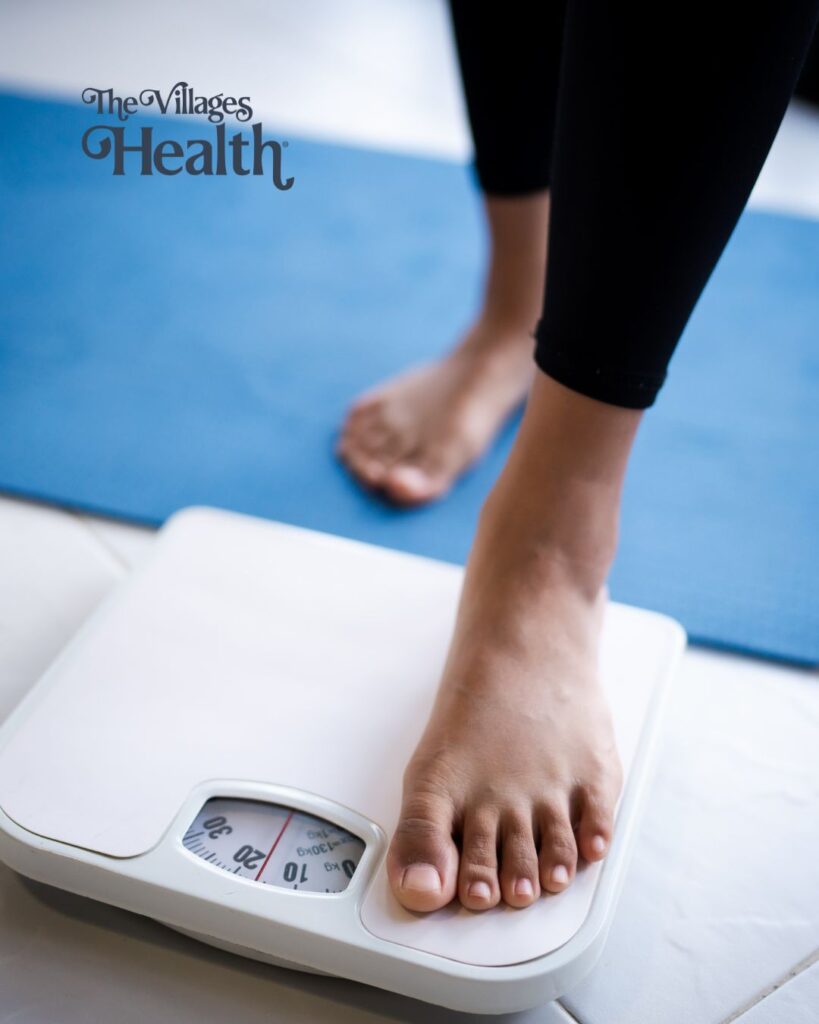Aside from skin cancer, prostate cancer is the most common cancer among men. As a urologist for The Villages Health, Dr. Michael Daugherty deals with the disease every day.
“It’s one of the main conditions we see,” he said. “In general, urologists are the ones that wind up taking care of prostate cancer, and we also work with oncologists and radiation oncologists.”
While cancer is an ominous word, prostate cancer is a highly treatable type.
“The five-year life expectancy across the board is around 99%,” said Daugherty. “Very few people die from it right away, if ever.”
The Centers for Disease Control and Prevention found that from 2018 to 2022, 70% of cases were diagnosed at a localized stage, meaning the cancer had not spread outside of the prostate. Finding the cancer early can improve the outcome and affect a patient’s rate of survival. However, since the majority of men diagnosed don’t experience symptoms, the disease can go undetected without regular screenings.
“If a patient comes in and is already symptomatic, then usually it’s further down the road; it’s more advanced,” said Daugherty.
Who’s At Risk for Prostate Cancer?
Prostate cancer can strike at any age, but the risks are greater among older men and those with a family history.
“If you have a brother or father with prostate cancer, it doubles your risk of having it, so family history is important,” Daugherty said. In addition, “If you’re African American, you typically get worse, more aggressive prostate cancer at the beginning. So those two groups of people—African Americans and family history members—are at much higher risk of getting the aggressive form of prostate cancer.”
Prostate Cancer Screening: Tools & Types
“Typically, the way we find prostate cancer is through a blood test called the PSA, (prostate-specific antigen),” Daugherty said. The test is often done by a primary care physician, who measures the amount of a specific protein in the blood that could signal prostate cancer.
“If the PSA is elevated, (the patient) will get a referral to the urologist, and then we do an examination,” Daugherty said. “And if we feel that it’s warranted, we order an MRI of the prostate. If the MRI shows anything suspicious, the next step would be a biopsy.”
Elevated PSA is not always a result of cancer, however. Certain medications, procedures, conditions, or even vigorous activity can raise PSA levels. It’s important to discuss these factors with your health care provider to support a proper diagnosis.
To Screen or Not to Screen: Addressing the Controversy
The American Cancer Society says about 1 in 8 men will be diagnosed in their lifetime, and the average age is about 67. Daugherty recommends men 50 and older get screened annually. However, this advice wasn’t always universally accepted and may still be met with resistance.
“About 10 years ago, (the U.S. Preventive Services Task Force) recommended that men not be screened for prostate cancer, that they stop PSAs,” Daughety said. “The reason was that many men who had an elevated PSA and didn’t have prostate cancer were going through biopsies when they weren’t needed. So the biopsy was the problem, not the PSA test. (The committee) didn’t want people to have unnecessary invasive procedures.”
This fear of overdiagnosis and overtreatment then led to a surge of cancer deaths in the years that followed. A 2014 study published by experts at Hutchinson Cancer Research Center predicted a 13 to 20 percent increase in prostate cancer mortality from 2013 to 2025 due to discontinued screenings. That’s an additional 36,000 to 57,000 deaths among U.S. men.
Prostate Cancer Treatment
Daugherty notes that once a man is diagnosed, doctors use various imaging tools to assess the cancer growth.
“We usually do a staging scan, which is like a PET scan for prostate cancer,” he said. “It shows if there’s any spread in the body, outside of the prostate.”
If the cancer is confined to the prostate, Daugherty says there are three ways it’s typically treated:
- Surveillance, which is to monitor the cancer through PSA tests, an option recommended for men with low-grade, slow-growing cancer. “We do the blood tests every four months, and we’re doing that now more than ever because around half of the guys we treat don’t need anything further,” Daugherty said.
- Surgery, which is an option for men with more aggressive prostate cancer. “We remove the prostate robotically,” he said. “It’s a simple procedure, just five little incisions and then you go home the next morning.”
- Radiation therapy, done by a specialized oncologist. “The radiation is very effective, and it’s probably the most common treatment for men between the ages of 70 and 80,” Daugherty said.
As for future treatments, cancer research has yielded some great developments. “One of the big things in the works is a vaccine,” says Daugherty. Researchers have found that the same genes involved in breast cancer (BRCA1 and BRCA2) also play a role in prostate cancer risk. Men with these gene mutations may benefit from advanced treatments and targeted therapies.
Protecting Against Prostate Cancer: Lifestyle Changes
Overweight men are more likely to develop advanced prostate cancer, and to die from the disease.
“The better shape you’re in, the lower your risk,” Daugherty said. “And diet makes a huge difference too. Most of the prostate cancers in the world come from countries that have a Western diet that is high in fat.” Excessive alcohol consumption, as well as red and processed meats, are also shown to negatively impact cancer risks.
If age or family history aren’t on your side, let positive lifestyle habits put the odds in your favor. Talk to your doctor about additional, individualized steps as well as PSA screenings.



